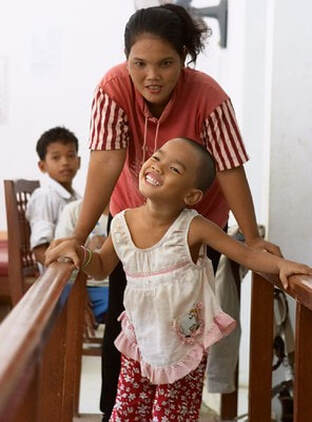|
A reader commented over the phone that The Sisterhood of Motherhood is "beautiful," "moving," and "spot on." I'm happy to be supporting women who have gone through so much emotional pain to build their families. Read it for yourself! Darla Nagel is a biomedical copy editor who has an invisible chronic illness. She wants to educate healthcare professionals and encourage patients. If you want to receive quarterly updates from her, email darla.nagel{a}gmail.com.
0 Comments
A touching novel about surrogacy, The Sisterhood of Motherhood by Darla Nagel is a sensitively penned and moving work of contemporary fiction. When Ivy Jean finds out that she won’t be able to have any more children due to the onset of aggressive cervical cancer, her sister-in-law Bethany offers to act as a surrogate mother, leading to a complicated new level in their relationship. Legal and medical technicalities, family tensions, and emotional turmoil are all covered with grace and subtlety, in a novel that is at once informative about the process of surrogacy and intimate in its poignant portrayal of Bethany Harding’s selfless act of compassion. ★★★★ —Self-Publishing Review The Sisterhood of Motherhood is a heartfelt slice-of-life story that follows a young woman's journey of self-discovery. Darla Nagel tells a moving, character-driven tale of sisterhood and friendship that demonstrates the resilience of the human spirit amid adversity. The author doesn't waste a single word, weaving a concise and absorbing plot that has your attention from the first page to the last. Bethany is someone who always felt overshadowed by her older brother. She wants to feel helpful and be loved but shies away from asking others for help. The family dynamics are the book's highlight for me, especially Bethany's relationships with Ivy Jean, Brandon, and her parents. I really appreciated the ending. I found it both realistic and hopeful. This is the perfect book for readers who love short, well-written, and intimate dramas. —Pikasho Deka for Readers’ Favorite (5 Stars) A detailed and thorough account of a surrogate pregnancy. Bethany, a single young woman, becomes a gestational surrogate for her brother and sister-in-law. Her sister-in-law has one child, but due to a cancer diagnosis must undergo a hysterectomy and is unable to conceive again. It isn’t a snap decision on Bethany’s part, but certainly a heartfelt one. She soon finds out there’s more to being a surrogate than she ever realized. This is a realistic, and no doubt, accurate depiction of the emotional and physical toll following such an act of selfless love. Bethany is not doing this for monetary reward. Characters are well-developed and the dialogue is credible. Bethany’s relationship with her older brother is an interesting one. At certain points, I did find myself skimming some of the more factual information. However, it is very clearly written and will be found helpful for those in need of the particulars. I should think the best audience for this book will include those interested in becoming a surrogate, or those who have a family member or friend considering becoming one. The Sisterhood of Motherhood will go a long way in helping women understand the high stakes of what is involved with surrogacy. —Susan E. Sage (5 Stars) Darla Nagel is a biomedical copy editor who has an invisible chronic illness. She wants to educate healthcare professionals and encourage patients. Her newest book is available from online booksellers. If you want to receive quarterly updates from her, email darla.nagel{a}gmail.com.
I read an article that is part reflection on the cultural or philosophical purpose of illness memoirs and part review of What Doesn’t Kill You: A Life With Chronic Illness by Tessa Millerby. The article, “The Consolation of the Illness Memoir” by Anna Altman at The New Republic, caught my attention as the author of an illness memoir. Some intriguing quotes from the article:
The article’s author notes that she has chronic migraine. Even if illness memoirs so far have failed to revolutionize American health care and cultural treatment of people with chronic illnesses, I believe the books are well worth writing and reading, for the benefit of patients and those closest enough to them to truly listen. Have you written one? If so, let me know, and I'll read it! Darla Nagel is a biomedical copy editor who has an invisible chronic illness. She wants to educate healthcare professionals and encourage patients. If you want to receive quarterly updates from her, email darla.nagel{a}gmail.com.
Did you know a plant-based diet could decrease cancer risk by 13% and heart disease risk by 20%? Did you know animal agriculture causes even more greenhouse gasses than all forms of transportation combined? These are just two statistical findings reported in OMD: The Simple, Plant-Based Program by Suzy Cameron, wife of screenwriter and director James Cameron. While the bulk of this book reports the environmental and health benefits of eating more plant-based (aka vegan) meals, there are also personal anecdotes of the pleasures of eating this way and recipes. An alternative title for this book would be “No More Beef.” Some subtle promotion of the school the author founded is included but does not detract from the message of the book. Unlike other vegan lifestyle books I’ve read, this one doesn’t pressure you to become 100% vegan but strongly encourages changing just one meal per day. That is a very doable change, especially with Cameron’s product recommendations and suggested meal plan. Without knowing about this book, I began making my breakfasts and often my lunches vegan in February. I remain committed to eating one vegan meal per day. Although I haven’t noticed any obvious health improvements from this approach, my body is prone not to recognize what’s good for it (thanks to a case of ME/CFS). Plus, I trust the benefits will be seen later in life when I have fewer age-related conditions, such as heart disease. I also like not worrying as much about the maltreatment of animals that I’m encouraging by consuming their products or worrying as much about my impact on greenhouse gasses and water consumption. I heartily recommend this book to anyone interested in taking a small yet powerful step to improve their health and the environment. Darla Nagel is a biomedical copy editor who has an invisible chronic illness. She wants to educate healthcare professionals and encourage patients. If you want to receive quarterly updates from her, email darla.nagel{a}gmail.com.
Amanda Leduc’s Disfigured: On Fairy Tales, Disability, and Making Space opens our eyes to how the portrayal of disabilities in fairy tales sets children up to shun disabled people, and she advocates for more accurate narratives of these excluded people. She weaves in her personal account of growing up with cerebral palsy, which keeps the book from becoming a scholarly work inaccessible to the majority of readers. You’ll never view the Disney princesses the same way again. This book was educational even for someone who has spent 10 years creating and sharing her own narrative of life with a disabling chronic illness that doesn’t have the classic fairytale happy ending, an ending which, according to Leduc, is not only unrealistic but also psychologically unhealthy. Great quotes from the book: “We exist in a world where happiness is synonymous with not being disabled—anything less than this comes across as undeserving, simply through virtue of not meeting the able-bodied ideal” (page 210). “This conceptualization of disability—at best merely a metaphor for psychological ills that can be overcome, at worse a punishment or judgment that can be reversed through magical or spiritual means, though only if one deserves it—does a disservice to the actual lived experience of what it means to occupy a different body in the world….denying the lived reality of what it means to be a disabled body in the world denies the possibility of growth on the disabled person’s terms” (page 216). Darla Nagel is a biomedical copy editor who has an invisible chronic illness. She wants to educate healthcare professionals and encourage patients. If you want to receive quarterly updates from her, email darla.nagel{a}gmail.com.
|
Author:
|


 RSS Feed
RSS Feed